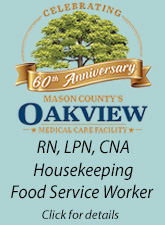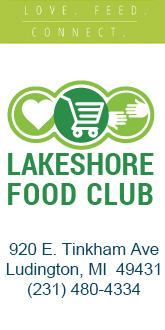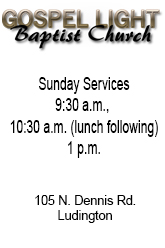 Letter to the Editor
Letter to the Editor
Letters to the editor are opinion editorials submitted by readers. Letters to the editor are a long tradition in American journalism. The views and opinions of the writer do not necessarily reflect those of Oceana County Press, its staff or its parent company. For more information, please refer to our Letter to the Editor Policy.
Dear Editor,
On November 1, 2025, Michigan families who rely on the Supplemental Nutrition Assistance Program (SNAP) are slated to see their benefits paused due to the ongoing federal shutdown and a decision by USDA not to draw from contingency funds. The Michigan Department of Health and Human Services has confirmed that November SNAP issuance is on hold “until further notice.” This isn’t an abstract budget debate—it’s an immediate crisis for our neighbors who use SNAP to put food on the table.
For households living paycheck to paycheck—or already stretched thin in the ALICE category (Asset Limited, Income Constrained, Employed)—this pause will mean hard choices: groceries or gas, winter coats or dinner, prescriptions or produce. In a rural region like ours, where transportation and distance compound the cost of living, the ripple effects are swift and punishing. Grocery carts get lighter. Lines at pantries and food clubs get longer. Anxiety grows. Local grocers and food producers feel it too as consumer spending drops when benefits don’t load.
That is precisely why Lakeshore Food Club exists—and why our community built it the way we did: as a dignified, choice-based model that respects people’s agency. Members shop like any customer would—choosing the fresh fruits and vegetables, proteins, dairy, and staples that fit their health needs, cultural preferences, and family realities. Dignity isn’t a tagline for us; it’s design. It’s the difference between a box of whatever is available and a cart that reflects what your kids will actually eat this week.
In the past few years, Lakeshore Food Club has grown from a single, local operation into part of a regional food-access ecosystem serving thousands of households across multiple programs, including school-placed Food Clubs and our new regional food hub. We have done this because need has grown—and because our model works. When members can choose foods they prefer and recognize, redemption is higher, waste is lower, and outcomes are better. Families eat more fresh food. Kids show up ready to learn. Older adults stretch fixed incomes without sacrificing nutrition.
A SNAP interruption magnifies the role of organizations like ours in three critical ways:
1) We stabilize households quickly and respectfully.
When benefits vanish without warning, families turn to us first because they know they’ll be welcomed, not judged. Our membership model cushions sudden shocks, allowing parents to keep packing lunches, seniors to maintain diabetic-friendly diets, and caregivers to manage allergies or medical restrictions without panic.
2) We strengthen the local food economy.
Through our regional food hub and partnerships with area farmers and producers, we source and move nutritious food efficiently—keeping more dollars circulating locally. In times like these, that regional supply chain resilience matters; it reduces shortages, maintains variety, and supports the producers who feed us year-round.
3) We reduce downstream costs in health and education.
Food insecurity is a leading social driver of poor health. A month without SNAP isn’t just a gap in groceries—it’s a spike in emergency needs, clinic visits, and classroom challenges. By maintaining access to fresh, healthy food, we help prevent a short-term policy failure from becoming a long-term community crisis.
Make no mistake: the SNAP pause is not a reflection of diminished need—it’s a funding decision amid a federal stalemate. Michigan did not choose this. The state has been instructed to hold issuance, and federal officials have stated they will not reimburse states that attempt to bridge November with their own funds. Communities like ours pay the price when federal commitments waver.
What can we do—right now?
- If you are a neighbor in need: Join Lakeshore Food Club. Membership is designed for households at or below 200% of the Federal Poverty Guidelines and for ALICE families who are employed but struggling. Bring your questions—we’ll help you navigate this season with dignity and clarity.
- If you are a donor or business partner: This is the moment your generosity changes outcomes. Direct support enables us to purchase fresh produce and protein at scale, expand store hours, and extend school-based Food Clubs so students don’t go hungry. Every $30 monthly gift keeps the shelves steady for a family whose SNAP card won’t load this month.
- If you are a farmer or food producer: Partner with our food hub. We can aggregate, store, and distribute your products efficiently, ensuring surplus doesn’t go to waste and families have access to fresh, local food during the pause.
- If you are an advocate: Contact federal representatives and urge an immediate resolution that restores November SNAP and protects nutrition programs during shutdowns. Families should never be collateral damage in budget politics. Credible reporting confirms the federal decision path that led to this pause; accountability and swift action are warranted.
Our commitment.
Lakeshore Food Club will meet this moment with the same resolve that has guided our work since day one: dignified access to fresh, healthy food in a rural community. We will stretch dollars, deepen partnerships, and widen our welcome. But we cannot do it alone. The strength of our model is the strength of our community—neighbors caring for neighbors, local producers feeding local families, and donors investing in practical, proven solutions.
SNAP is a cornerstone of America’s nutrition safety net. When it falters, communities must hold the line. Lakeshore Food Club is ready. With your help, we will ensure that a federal pause does not become a local hunger crisis.
— O’Nealya Gronstal, Executive Director, Lakeshore Food Club, Ludington





































.png)












